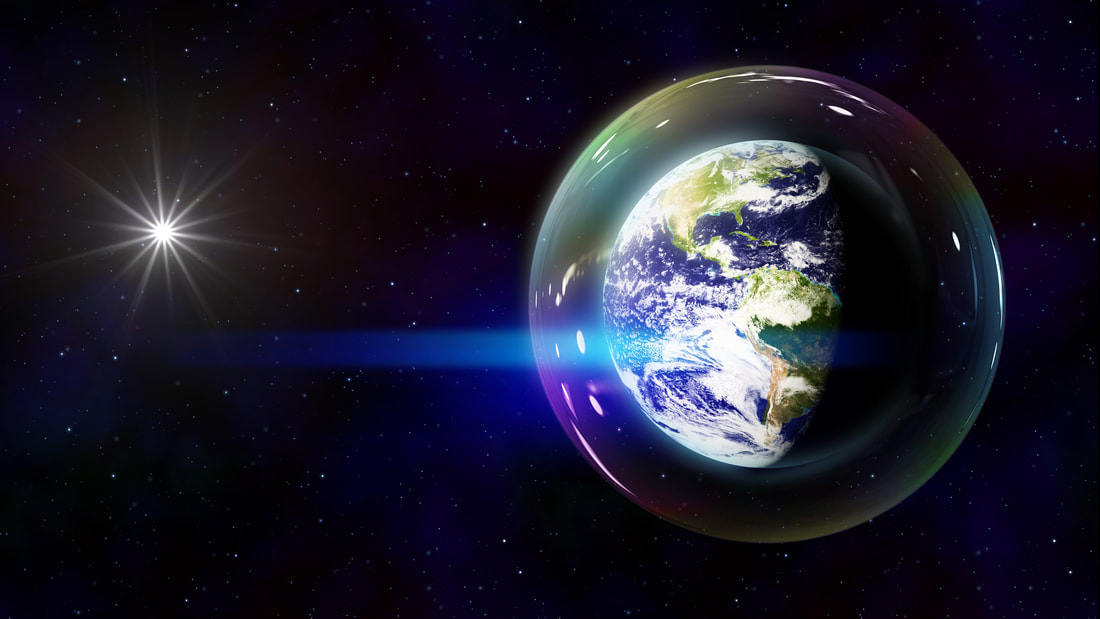Earth - The Science Behind The Myth
Science fiction writers have toyed with the notion that earth might be an organism: a single spherical creature that is host to other lives, much the way a whale is host to barnacles and the human being to bacteria.
|
A British scientist, James E. Lovelock, proposes that this idea is not mere fancy but may be in fact be the scientifically correct view on earth.
Lovelock, a specialist in gas chromotography who is credited with revolutionizing the chemical study of the atmosphere, sees science as "the way of life in which science fiction is reduced to practice." |
|
He rejects the popular image of the planet as a vehicle for life. Instead, he suggests that "the entire range of living matter on earth from whales to bacteria and from oaks to algae, could be regarded as constituting a single living entity," one that is "endowed with faculties and powers far beyond its constituent parts.
|
The parts would include oceans, soils, the atmosphere, algae and human. The faculties would include the capacity to manipulate the parts and the immediate environment to suit the entity's overall needs
|
Lovelock calls this hypothetical entity Gaia, choosing the name of the ancient Greek goddess who, also known as Ge, provides the root of "geology" and "geography." His theory links the most recent and sophisticated discoveries of science with ancient myth.
In contemporary thinking the Gaia hypothesis represents a quantum jump from spaceship Earth. The spaceship metaphor, inspired by photographs brought back by the first astronauts, focused awareness on the fragility of the biosphere and the need for conservation. |
But that metaphor did not challenge the premise upon which western civilization has stood for some 2,000 years that the earth is man’s to use and manage, whether he be conqueror or steward.
BELIEVING IN
GAIA
In fact, the spaceship image suggests that man must assume even greater, more comprehensive control of the planet. For a spacecraft needs a captain with the power to make life and death decisions for all passengers from the crew.
The Gaia vision, on the other hand imply that "the stable state of our planet includes man as a part of, or partner in, a very democratic entity," writes Lovelock in Gaia - A New Look at Life on Earth, (Oxford University Press). Man becomes what the American Indian saw him to be: a member of a family of living things.
Explore the GAIA experience through the secrets space program, yoga and the paranormal experience that surrounds us.
The Gaia vision, on the other hand imply that "the stable state of our planet includes man as a part of, or partner in, a very democratic entity," writes Lovelock in Gaia - A New Look at Life on Earth, (Oxford University Press). Man becomes what the American Indian saw him to be: a member of a family of living things.
Explore the GAIA experience through the secrets space program, yoga and the paranormal experience that surrounds us.
Article by Rasa Gutaitis, The Berkeley Gazette (California), page 13, February 17, 1980
Site powered by Weebly. Managed by iPage


